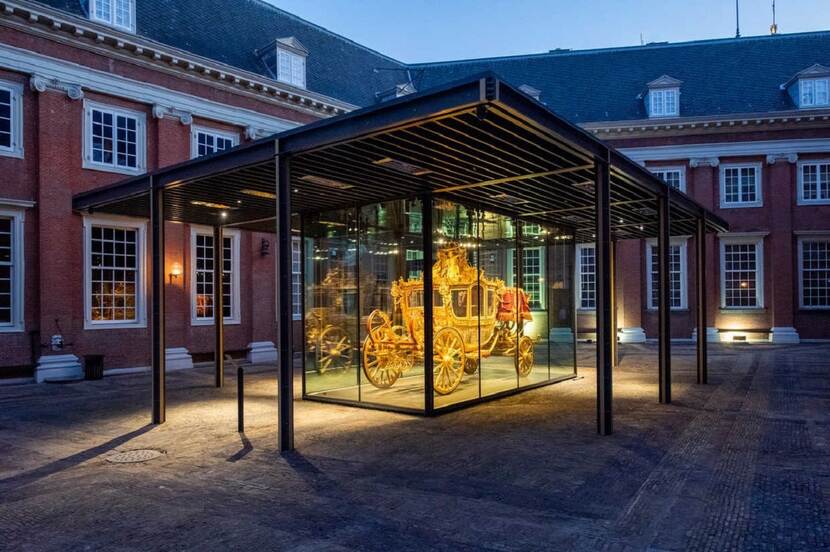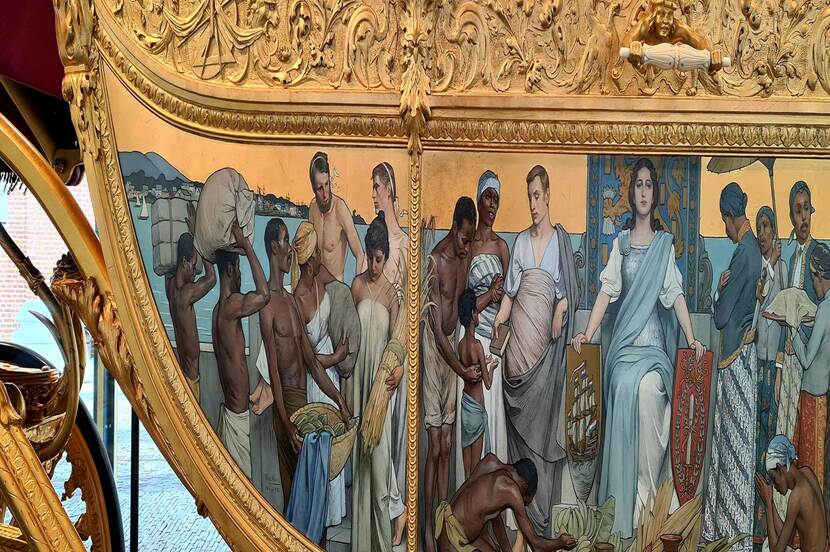Sharing Stories on Contested Histories 2021 – The Embassy edition
Weblog
In 2018, 2019 and 2021, the Cultural Heritage Agency of the Netherlands (RCE) and the Reinwardt Academy jointly organised the international training Sharing Stories on Contested Histories, in the framework of the Shared Cultural Heritage programme (2017-2020). This training, aimed at young heritage professionals, originated from the need to gain more expertise on the engagement with contested heritage and explores approaches and tools available to present contested heritage from multiple perspectives. In this blog, Arjen Kok - project manager of this training - reflects on this embassy edition.
Because of its success, various policy officers at the Netherlands Embassies asked for a similar training. Not only did the urgency of the theme emerge in their activities and responsibilities, they were also driven by the goal to learn how to create multiperspectivity in their practice as cultural attachés.
This special edition of the training took place already in the context of the International Heritage cooperation programme (2021-2024). Rather than taking place during two weeks with a full-time schedule, the training for the embassies accommodated the schedules of the policy officers and was given online over the course of two months (November and December 2021), with sessions once a week. Arjen Kok (RCE) and Ruben Smit (Reinwardt Academy) led the training and different museum professionals and scholars were invited to give presentations and engage in discussions with the participants. In this sense, Sharing Stories on Contested Histories is not so much a training as a workshop in which dilemmas are presented to the participants. The curators and researchers offer their thoughts and experiences but do not claim to have the answers. It is up to the participants to question these thoughts and experiences and to share their own views in an open discussion.

The Golden Coach
Until recently, the Amsterdam Museum had an exhibition on show about the Golden Coach, which has long been used by the king or queen of the Netherlands to ride to the Binnenhof on Prince’s Day. For several years, it has also been the subject of a heated debate because of the painting on the left side of the coach titled “Tribute from the Colonies”. After five years of restauration work, the coach was on loan at this museum and on display. During this exhibition, research was carried out amongst members of the public to get a sense of the different opinions and feelings about this object as well as its future. This exhibition and its wider project were used as the main case study for this edition of the Sharing Stories on Contested Histories training.
During the training, senior curator Annemarie de Wildt of the Amsterdam Museum asked the participants: who needs to have a seat ‘at the table’ when the future of the Golden Coach is discussed to present the King with advice when the loan is returned? The participants debated whether the museum is right to take a more activist position and provoke rather than neutrally present the “facts”. It was also discussed whether this institution should pay more attention to the “silent majority”? In the meantime, advice has been given to the King, who has decided that the Golden Coach will not be used for the time being.

Colonialism
Are museums in an identity crisis?, asked one of the participants. Yes, answered Wayne Modest, Director of Content for the National Museum of World Cultures. “We don’t know what to do with the deep seated colonialism in our institutions. The history of colonialism is living on in our present day.” The heritage and culture we share is far from neutral and contains many dark and cruel moments as much as feelings of wonder or appreciation. In heritage and museum practices, is it knowledge that we pass on about the past and present or do we preserve and continue the inhuman and humiliating relationships that the objects represent?
Archival viewpoints
Professor of archival studies Charles Jeurgens reflected on the explicit and implicit perspectives that are contained in the 125 kilometers of files and documents that the National Archive has collected. They are structured by the official viewpoints of the State authorities and officials, which determine the information that they contain. But the archivists who managed the documents also add their professional and cultural filters, like, for instance, the traditional position of the man as head of the household. How do you deal with these sometimes outdated perspectives and the consequences of these collection and interpretation practices regarding the production of knowledge?
Slavery Exhibition
Earlier last year, the Rijksmuseum presented the “Slavery” exhibition and Maria Holtrop, member of the curatorial team, shared many of the dilemma’s that the team encountered in the making of this groundbreaking project. It gave an interesting insight into the international contacts of the Rijksmuseum, some of whom the participating diplomats in the training are also working with. “Revolusi!”, this museum’s new exhibition on the Indonesian war for independence, illustrates the complexity of this international cooperation. For instance, much attention has lately been given in Dutch and Indonesia news media regarding the kinds of terms and words that should (or not) be used to describe certain events and from which perspectives.
New Insights and Reflection
The participants had ample room for discussion and exchange of ideas and experiences. Next to all the new insights, this is why the training was so successful: it gave the individual policy officers a chance to reflect on one’s own practice and ideas. We are struggling for new common narratives, said one participant. “Guilt seems a troublesome concept” and “our words tend to be aggressive”, reflect the experience of others. But the training also showed that discussion about contested histories is possible and that it even helps with approaching the big issues that dominate the international relationships.
What’s next?
In 2022, a new edition of the training Sharing Stories on Contested Histories starts in November, aimed at young museum professionals. Some fundamental changes inspired by the new goals of the International Heritage Cooperation programme of the RCE will offer a fresh approach to the central theme, and will inform the format of the training.